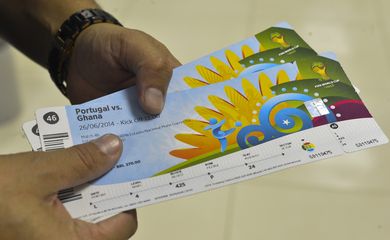Colombians’ interest in Portuguese grow ahead of World Cup


In Bogotá, the Brazil-Colombia Institute (“Ibraco”) found it challenging to find enough Brazilian teachers to meet the demand created in the first semester.The demand for Portuguese classes has grown significantly with the upcoming competition

The 2014 World Cup in Brazil has further aroused the interest in learning Brazilian Portuguese among Colombians. In Bogotá, the Brazil-Colombia Institute (“Ibraco”), generally regarded as the biggest Portuguese language school, with over 5.3 thousand new students every year, found it challenging to find enough Brazilian teachers to meet the demand created in the first semester.

A new course was introduced, with a focus on the tournament (Leandra Felipe / Agência Brasil)
Although Brazil’s official language was already a subject of interest, the demand for classes has grown significantly with the upcoming competition, said Ibraco’s academic director Beatriz Miranda. “We’ve run short of classrooms and teachers in the institute,” she reported. Apart from the classes taught at Ibraco, Colombians learn Portuguese at universities as well as 40 companies.
Ahead of the World Cup, Ibraco introduced a new course with a focus on the tournament. Its curriculum has football at its core, and covers cultural elements from each of the host cities. “We take the chance to show local cuisine and music as part of our classes,” said Brazilian teacher Karen Vieira.
The course is also offered to Colombians traveling to Brazil on business during the World Cup. That is the case with major Colombian television and radio broadcasting company Caracol, which has gone into partnership with the institute to teach its employees the Portuguese language. Darcy Quinn, a journalist from Caracol, said the classes give him a chance to practice his listening skills. “It helps us acclimatize. Rio de Janeiro was the only city I had visited, and I knew very little about other places in Brazil,” he noted.
For old Portuguese learners, the mega event in Brazil has become a chance to get further acquainted with the language. Manager Angela Ortizo, 35, is going to Brazil with her father, who will turn 60 during the World Cup. “It’ll be our dream trip,” she said. She can speak and understand the language well, and said she will take advantage of the competition by learning more about the cities where the Colombian team will play.
Translated by Fabrício Ferreira
Fonte: Colombians’ interest in Portuguese grow ahead of World Cup



